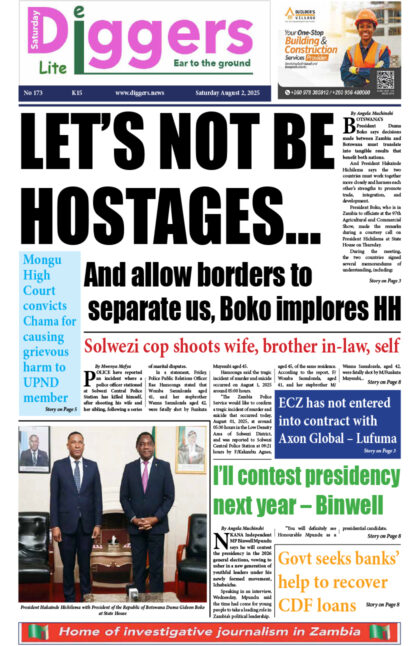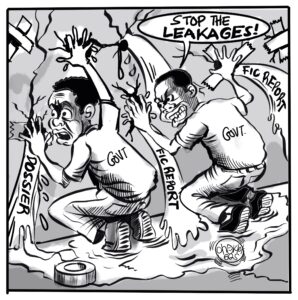The World Bank says 75 percent of the Zambian Cabinet’s decisions are never implemented.
In its “Zambia Systematic Country Diagnosis” report of March 2018, the World Bank noted that weak capacity to manage public expenditure and implement policy programs was undermining service delivery effectiveness.
“The weak capacity to manage public expenditures and implement policy programs is also undermining the effectiveness of public policy on service delivery. Evidence suggests that policy implementation has always been weak in Zambia. A tracking study revealed that 75 percent of the Cabinet decisions are never implemented. For example, Zambia has a free education policy, and primary schools are supposed to receive government grants to ensure every child has access to education. However 30 percent of the schools do not receive them and end up collecting fees from students, which in poor households can represent up to 30 percent of their annual expenditure, undermining the free education policy and acting as a de facto barrier to access to education (World Bank 2015c). Similarly, inefficiencies in the implementation of the FISP undermine its impact on agriculture productivity and poverty reduction,” read the World Bank report.
The World Bank also stated that groupings with political connections were likely to remain influential in policy making in exchange for political support.
“There is an increasing geographical political divide with a clear regionalization of voting patterns. The country has become split almost into two camps controlled by the two main political parties, the United Party for National Development (UPND) gaining the most votes in the west and the Patriotic Front (PF) gaining the most votes in the east of the country. Zambia’s two most elections were won with narrow majorities. In this competitive environment, organized groups with political connections are likely to remain influential in policy making in exchange for political support. Because of these dynamics, politics in Zambia generally exhibit an extreme tendency towards the status quo, (Fritz, 2009; Taylor and Simutanyi 2007), which is particularly acute on issues such as land reform, social protection, or tax policy, where the pressure for reform is diffuse or comes from sources who are not able to threaten the state,” the report read.
“Policies tend to entrench rather than alleviate distortions to achieving inclusive and sustainable development in Zambia. Weak institutions and limited transparency and accountability create space for vested interests to have a disproportionate influence in policymaking and public resource allocation, hindering pro-poor growth. The orientation of fiscal policy towards fuel and electricity subsidies in 2014-16 is a case in point. Zambia is characterised by a week legal framework, cumbersome business procedures, dysfunctional state-owned enterprises and commercial justice, and limited regulatory capacity.”
Meanwhile, the World Bank observed that the Anti-Corruption Corruption’s structure had not substantially affected perceptions of public fund abuses.
“Zambia’s public finance expenditure management systems remain weal. Most indexes appear stagnant in recent years, although with some showing regression and others registering only slight improvements. In other cases, the forms of institutions (the laws policies, systems, and structures) have shifted to mirror the ‘best practices’ established by developed country counterparts, but functionality (their de facto performance) remains relatively the same. For example Zambia has an Anti-Corruption Commission that, in structure and law, largely reflects its international counterparts but had not substantially affected perceptions of public funds abuses. There is procurement registration and oversight that does not seem to be able to guarantee reliable and efficient resource flows and transactions. A complex budgeting and planning process has also not resulted in more prudent fiscal decisions (IEG 2015; ZIPAR 2012), evidenced by the huge build-up of government payment arrears in 2015 and 2016 when the economy and revenue inflows slowed down,” read the World Bank report.























